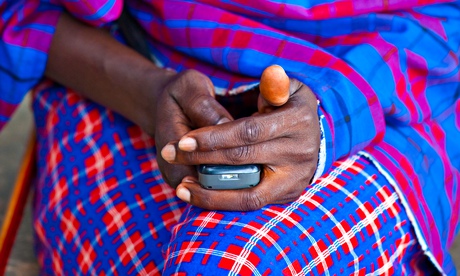
Some years ago, I had a conversation with a senior minister in which he revealed that he thought the web was the internet. While I was still reeling from the shock of finding a powerful figure labouring under such a staggering misconception, I ran into Sir Tim Berners-Lee at a Royal Society symposium. Over coffee, I told him about my conversation with the minister. “It’s actually much worse than that,” he said, ruefully. “Hundreds of millions of people now think that Facebook is the internet.”
He’s right – except that now the tally of the clueless is now probably closer to a billion. (Facebook has more than 1.3 billion users, some of whom presumably know the difference between an app and the network.)
Does this matter? Answer: yes, profoundly, and here’s why. As I write, the number of internet users worldwide stands at just over 3 billion, or 42% of the global population. That sounds impressive until you remember that it means that 58% of our fellow-humans still aren’t networked. But every prediction I’ve seen suggests that that will change, and that in the next decade another 2 billion people will get an internet connection.
Most of them will connect to the network not via a PC (or even a tablet) but using a mobile phone – a smartphone, that is to say a phone that can run a web browser, do email, etc. And those devices will hook up to the internet via the wireless networks owned and operated by mobile phone companies.
What this means is that, one day, most people’s connections to the internet will be mediated by some of the richest companies in the world, namely telecoms (or telecommunications companies, to give them their full titles). Globally, there are about 900 of them and they take in $1.3 trillion in revenue each year, which is about four times the combined revenue of Google, Apple, Microsoft and Intel. Using a phone to, say, browse the web requires that digital data shuttles to and fro across these telecoms’ mobile networks, which is why if you want to use a smartphone you need a “data plan”. And – as you doubtless know to your cost – data plans don’t come cheap.
For users in developed countries the high cost of mobile data is annoying but not a showstopper. In developing (ie poor) countries, however, it is. And since most of the next 2 billion internet users live in these countries, if the dream of ubiquitous connectivity is to be realised then some way has to be found to make that mobile connectivity affordable.
To date, there have been only two big ideas about how to do it. One is Google’s Project Loon, which aims to provide free internet connectivity by ringing the globe with high-altitude balloons sailing on the winds in the stratosphere, 20km above the earth. It’s a classic Google “moonshot” project – insanely ambitious, technically difficult and with no guarantee of success. Many people are sceptical about its feasibility, and some (like Bill Gates) are openly contemptuous of it as a vanity project for high-IQ nerds.
The other big idea comes from – you guessed it – Facebook. Here the proposition is that the company does a deal with telecoms firms in developing countries which ensures that data rates for users of the Facebook app on their smartphones are zero, or at least capped, while the data going to and from other apps costs the usual arm and a leg. So when a new user in Somalia, India or Burma switches on her shiny new budget smartphone what she sees is a Facebook app which provides “internet” connectivity free, while other apps incur whatever charges are levied in the data plan agreed with the mobile operator.
The term for this wheeze is “zero rating” and it’s fiendishly cunning. Sure (say its advocates), it effectively locks poor people into Facebook’s walled garden, where they can be “monetised” if they ever have anything worth monetising. But isn’t limited access to an online world made up of Facebook, Google, Twitter – and maybe Wikipedia thrown in as a gesture of goodwill – better than no access at all for people on the other side of the digital divide?
This is a pernicious way of framing the argument, and we should resist it. The goal of public policy everywhere should be to increase access to the internet – the whole goddam internet, not some corporate-controlled alcove – for as many people as possible. By condoning zero-rating we will condemn to a lifetime of servitude as one of Master Zuckerberg’s sharecroppers. We can, and should, do better than that.

